Did you know that visiting a vegetable nursery near you can provide you with fresh and organic veggie starts for your garden? It’s true! Whether you’re a seasoned gardener or just starting out, a trip to your local plant nursery can offer you healthy plants and expert advice. With their wide selection of vegetable starts, you can find the perfect varieties to add to your garden. So, let’s explore the benefits of shopping locally and discover the best vegetable nursery near you!
Key Takeaways:
- Visiting a vegetable nursery near you can provide you with fresh and organic veggie starts for your garden.
- Local plant nurseries offer a wide selection of vegetable starts and expert advice.
- Shopping at a local garden center supports local businesses and reduces environmental impact.
- Consider factors such as location, variety of vegetables, and whether they offer organic options when choosing the best vegetable nursery near you.
- Follow proper growing tips and continue caring for your vegetable garden with guidance from the nursery or local garden center.
Find the Best Vegetable Nursery Near Me
When I’m searching for the best vegetable nursery near me, there are a few key factors I consider. First and foremost, location plays a crucial role. I want a nursery that is conveniently located, so I don’t have to spend a lot of time traveling. This ensures that the plants I choose will be well-suited to my local climate, increasing their chances of thriving in my garden.
Another important aspect is the variety of vegetables available at the nursery. I love having a wide selection to choose from, as it allows me to experiment with different flavors and textures in my cooking. Whether I’m looking for common vegetables or unique heirloom varieties, a nursery with a diverse range of options is always a winner in my book.
If growing organic is a priority for you, like it is for me, then finding a certified organic nursery is essential. These nurseries follow strict organic growing practices, ensuring that the plants are free from synthetic chemicals or pesticides. It’s reassuring to know that the vegetable starts I bring home are not only healthy but also better for the environment.
No matter what your gardening goals are, finding the best vegetable nursery near you involves considering location, variety, and organic options. By choosing a nursery that ticks all these boxes, you can be confident in the quality of your vegetable starts and set yourself up for a successful and rewarding gardening experience.
Benefits of Shopping at a Local Garden Center
Shopping at a local garden center or plant nursery shop provides numerous advantages for both garden enthusiasts and the community. Not only do you gain access to a diverse range of high-quality vegetable starts, but you also support local businesses and contribute to a greener environment by reducing the transportation distance of plants.
One of the key benefits of shopping locally is the opportunity to connect with knowledgeable staff who possess a wealth of expertise in selecting and caring for vegetables. Whether you’re a novice or experienced gardener, their guidance can be invaluable in ensuring successful plant growth. From recommending suitable varieties for your specific garden conditions to providing tips on proper planting techniques, these experts are there to assist you every step of the way.
Additionally, shopping at a local garden center or plant nursery shop fosters a sense of community and encourages the exchange of gardening experiences and ideas amongst fellow gardeners. You can connect with like-minded individuals and build lasting relationships, strengthening the local gardening community as you pursue your shared passion for cultivating fresh, flavorsome vegetables.
“Shopping at my local garden center has elevated my gardening experience to new heights. The staff’s knowledge and enthusiasm have helped me select the perfect vegetable starts, and I’ve formed wonderful connections with other passionate gardeners in my community.”
Moreover, by choosing a local garden center or plant nursery shop, you contribute to the preservation of environmental resources. These establishments prioritize sourcing plants from nearby nurseries, reducing the carbon emissions associated with long-haul transportation. By supporting local businesses, you actively participate in sustainable practices, promoting a more eco-friendly approach to gardening.
In summary, shopping at a local garden center or plant nursery shop offers a range of benefits beyond acquiring high-quality vegetable starts. From expert guidance to fostering community connections and reducing environmental impact, these establishments are an integral part of any gardening journey. So, make the choice to support your local community while nurturing your green thumb.
Indoor and Outdoor Vegetable Nurseries
When it comes to vegetable nurseries, you have options based on your specific needs and preferences. Some nurseries specialize in indoor plants, while others focus on outdoor gardening. Let me guide you through the benefits and considerations of both options.
Indoor Vegetable Nurseries
An indoor vegetable nursery is an excellent choice if you have limited outdoor space or if you want to enjoy gardening year-round. These nurseries offer a wide variety of vegetables that can be grown in containers or raised beds, making them perfect for balconies, small patios, or even windowsills.
Growing vegetables indoors allows you to have control over the growing conditions, including temperature, lighting, and moisture. You can create a microclimate tailored to the specific needs of each plant, ensuring optimal growth and yield. Additionally, indoor gardening protects your plants from extreme weather events, pests, and diseases, allowing for a more consistent and successful harvest.
Outdoor Vegetable Nurseries
If you have a larger garden and prefer the traditional approach of growing vegetables in the ground, an outdoor vegetable nursery is the way to go. These nurseries offer a wide variety of plants that are well-suited for outdoor cultivation and can thrive in your local climate.
Growing vegetables outdoors provides the benefit of ample space for your plants to spread their roots and receive natural sunlight. It allows for a more extensive selection of plants, including those that require a larger growing area, such as sprawling vines or root vegetables.
Whether you choose an indoor or outdoor vegetable nursery, it’s important to consider your available space, gardening goals, and personal preferences. Both options offer unique advantages and can be tailored to suit your individual needs.
The Best Plant Nursery for Your Needs
When it comes to finding the best plant nursery for your gardening needs, there are several key factors to consider. From location to variety of vegetables and the expertise of the staff, finding the right nursery can make all the difference in your gardening journey.
Location: One of the first things to consider is the proximity of the nursery to your home. Look for a plant nursery nearby that is convenient for you to visit regularly. This not only saves you time and travel expenses but also ensures that the plants you choose will be suitable for your local climate.
Variety of Vegetables: Another important factor is the availability and diversity of vegetable options at the nursery. You want to ensure that they have the specific vegetables you’re looking for and offer a wide selection. Whether you’re searching for rare heirloom varieties or popular vegetables like tomatoes and peppers, a nursery with a diverse range of options will give you more choices to suit your gardening goals.
Expertise of the Staff: The knowledge and experience of the nursery staff are invaluable resources for any gardener. Look for a nursery with a skilled and friendly team who can provide guidance and answer any questions you have. Whether you’re a beginner or a seasoned gardener, having access to expert advice can significantly enhance your gardening experience.
By considering these factors, you can find the best plant nursery that meets your specific needs. Let me show you an example:
Lush Greens Nursery
Location: 123 Main Street, Anytown, USA
Specialty: Wide range of organic vegetable starts
Expertise: Knowledgeable staff with years of gardening experience
| Nursery | Location | Variety of Vegetables | Expertise of Staff |
|---|---|---|---|
| Lush Greens Nursery | 123 Main Street, Anytown, USA | Offers a wide variety of organic vegetable starts | Knowledgeable staff with years of gardening experience |
No matter if you’re a novice gardener or a seasoned green thumb, finding the best plant nursery near you is the key to a successful gardening experience. With the right location, diverse vegetable selection, and knowledgeable staff, you’ll have all the resources you need to create a thriving garden.
Certified Organic Nurseries
If you’re looking to grow organic vegetables, consider visiting a certified organic nursery. These nurseries follow strict guidelines and practices to ensure their plants are grown without the use of synthetic chemicals or pesticides. Certified organic nurseries prioritize sustainability and environmental stewardship. When shopping at a certified organic nursery, you can be confident that the vegetable starts you purchase are free from harmful chemicals and are better for your health and the environment.
Organic gardening has gained popularity in recent years due to its numerous benefits. By choosing to support certified organic nurseries, you contribute to a healthier environment and promote sustainable agricultural practices. These nurseries prioritize the health and well-being of both consumers and the planet.
When you purchase vegetable starts from a certified organic nursery, you can be assured that the plants have been cultivated with care, using natural methods to enhance their growth and protect them from pests and diseases. The absence of synthetic chemicals and pesticides ensures that your vegetables are pure and safe.
In addition to providing a wide selection of organic vegetable starts, certified organic nurseries often have knowledgeable staff who can offer expert advice on organic gardening techniques. They can guide you in choosing the right varieties for your garden and provide tips on proper care and maintenance.
By supporting certified organic nurseries, you also contribute to the larger movement of sustainable agriculture. These nurseries play a vital role in preserving biodiversity, conserving soil and water resources, and reducing carbon emissions.
The Benefits of Shopping at Certified Organic Nurseries:
- Environmentally-friendly practices
- Healthier and safer plants
- Expert advice on organic gardening
- Support for sustainable agriculture
Whether you’re an experienced organic gardener or just starting your journey, visiting a certified organic nursery is a wise choice. You’ll not only find high-quality, chemical-free vegetable starts, but you’ll also contribute to a more sustainable and environmentally-conscious future.
Popular Vegetables at Local Nurseries
Local nurseries offer a wide selection of popular vegetables that are sure to enhance your garden and delight your taste buds. These vegetables not only provide delicious flavors but also offer numerous health benefits. Let’s explore some of the most sought-after vegetables that you can find at your nearby nursery:
| Vegetable | Description |
|---|---|
| Broccoli | Rich in vitamins and minerals, broccoli is a cruciferous vegetable that adds a refreshing crunch to salads and stir-fries. |
| Brussel Sprouts | These small, cabbage-like vegetables are packed with nutrients and offer a unique, slightly nutty flavor when roasted or sautéed. |
| Cabbage | Cabbage is a versatile vegetable that can be enjoyed raw in salads, cooked in stir-fries, or fermented into sauerkraut for added probiotics. |
| Cauliflower | This cruciferous vegetable is a great substitute for rice or mashed potatoes and can be used to make delicious gluten-free pizza crusts. |
| Garlic | A staple in many cuisines, garlic not only adds a flavorful punch to dishes but also offers immune-boosting and antibacterial properties. |
| Kale | Kale is a nutrient powerhouse, rich in vitamins, antioxidants, and fiber. It can be enjoyed in salads, smoothies, or even as crispy kale chips. |
| Lettuces | With their refreshing, crisp texture, lettuces are perfect for salads and sandwiches. They come in a variety of colors and flavors. |
| Spinach | Spinach is packed with iron, vitamins, and minerals, making it a nutritious addition to salads, smoothies, and cooked dishes. |
| Asparagus | This vibrant green vegetable is a delightful addition to any meal. It can be steamed, roasted, or grilled for a deliciously tender result. |
| Beans | Beans, whether green, string, or snap, provide a good source of protein and dietary fiber. They can be steamed, sautéed, or added to soups and stews. |
These popular vegetables are not only flavorful but also offer a range of culinary possibilities. Whether you’re a fan of hearty soups, fresh salads, or mouthwatering stir-fries, these vegetables can be incorporated into a variety of dishes to suit your taste and dietary needs.
Expand Your Culinary Horizons
Discover the versatility of these vegetables and experiment with different cooking methods, flavor pairings, and recipes. From simple roasted brussel sprouts to vibrant kale salad, there’s no limit to the delicious creations you can make using these popular vegetables.
“Vegetables are a treasure trove of flavors and textures. Don’t be afraid to explore new recipes and techniques to unlock their full potential.”
So, the next time you visit a local nursery, be sure to inquire about the availability of these popular vegetables. Your taste buds and your body will thank you for incorporating these wholesome delights into your culinary repertoire.
Growing Tips for Vegetable Starts
When purchasing vegetable starts from a vegetable nursery near me or an organic plant nursery, there are important growing tips to keep in mind. Following these tips will help ensure the success of your plants and maximize your harvest. Here are some key steps to follow:
- Choose Healthy Plants: Start by selecting vegetable starts that have strong stems, vibrant leaves, and show no signs of disease or pests. Healthy plants have a better chance of thriving in your garden.
- Prepare Your Soil: Ensure that your soil is fertile and well-drained to provide the necessary nutrients and moisture for your vegetable starts. Mix in organic compost or other soil amendments to improve the soil quality.
- Follow Planting Instructions: Each vegetable variety has specific planting requirements. Follow the recommended instructions for spacing, depth, and any special care instructions provided by the nursery or seed packet.
- Provide Adequate Water and Sunlight: Water your vegetable starts regularly, keeping the soil consistently moist but not waterlogged. Place your plants in a location that receives adequate sunlight according to their specific requirements.
- Monitor for Pests and Diseases: Keep a close eye on your plants and watch for signs of pests or diseases. Act quickly if you notice any issues by using organic pest control methods or seeking advice from the nursery staff.
If you have any questions or need assistance with your vegetable starts, don’t hesitate to consult with the knowledgeable staff at the nursery. They can provide you with expert advice specific to your plants and growing conditions. Remember, a little extra care and attention at the beginning can lead to a bountiful and successful vegetable garden.
By following these growing tips, you can give your vegetable starts the best chance to flourish and provide you with a delicious and nutritious harvest. Take the time to properly prepare your soil, choose healthy plants, and provide the necessary care. Your efforts will be rewarded with an abundant and thriving vegetable garden.
Caring for Your Vegetable Garden
Once you’ve established your vegetable garden with the help of a local nursery, it’s important to continue caring for your plants. Here are some essential tips to ensure a thriving vegetable garden:
1. Watering:
Water your garden regularly to keep the soil consistently moist. However, avoid overwatering, as it can lead to waterlogged soil and root rot. Check the moisture level by sticking your finger into the soil about an inch deep; if it feels dry, it’s time to water.
2. Nutrient-Rich Soil:
Provide necessary nutrients to your plants by using organic fertilizers or compost. These natural alternatives enhance the soil’s fertility and promote healthy growth. Work the compost into the top few inches of soil before planting, and consider periodic applications of organic fertilizer throughout the growing season.
3. Pest and Disease Control:
Monitor your vegetable garden regularly for any signs of pests or diseases. Common garden pests include aphids, snails, and caterpillars. Take prompt action to control them, using organic pest control methods if possible. Remove any affected plants to prevent the spread of disease.
4. Harvesting:
Harvest your vegetables at the right time to enjoy them at their peak flavor and nutritional value. Each vegetable has its own optimal harvesting time, so familiarize yourself with the specific guidelines for each variety. Avoid waiting too long to harvest, as overripe vegetables may become tough or lose flavor.
5. Ongoing Support:
If you need further guidance or have specific questions about caring for your vegetable garden, don’t hesitate to reach out to the nursery or local garden center. They can provide ongoing support and answer any inquiries you may have. Their expertise and knowledge can help you overcome challenges and ensure a successful gardening experience.
| Beneficial Tips for Vegetable Garden Care | |
|---|---|
| Water your garden regularly, avoiding overwatering. | |
| Use organic fertilizers or compost to provide necessary nutrients. | |
| Monitor for pests and diseases and take prompt action if necessary. | |
| Harvest vegetables at their optimal time for the best flavor and nutrition. | |
| Seek ongoing support from the nursery or local garden center. |
Conclusion
Looking for a vegetable nursery near me or visiting a local garden center or plant nursery shop is the key to finding top-quality vegetable starts for my garden. Whether I prefer an indoor or outdoor nursery, organic or conventional plants, these nurseries offer a wide range of expertise and variety that can help me create a thriving vegetable garden. The knowledgeable staff at these nurseries can provide valuable guidance and advice throughout the growing season, ensuring my success as I nurture my plants. So, what are you waiting for? Let’s get gardening and enjoy the delicious rewards!

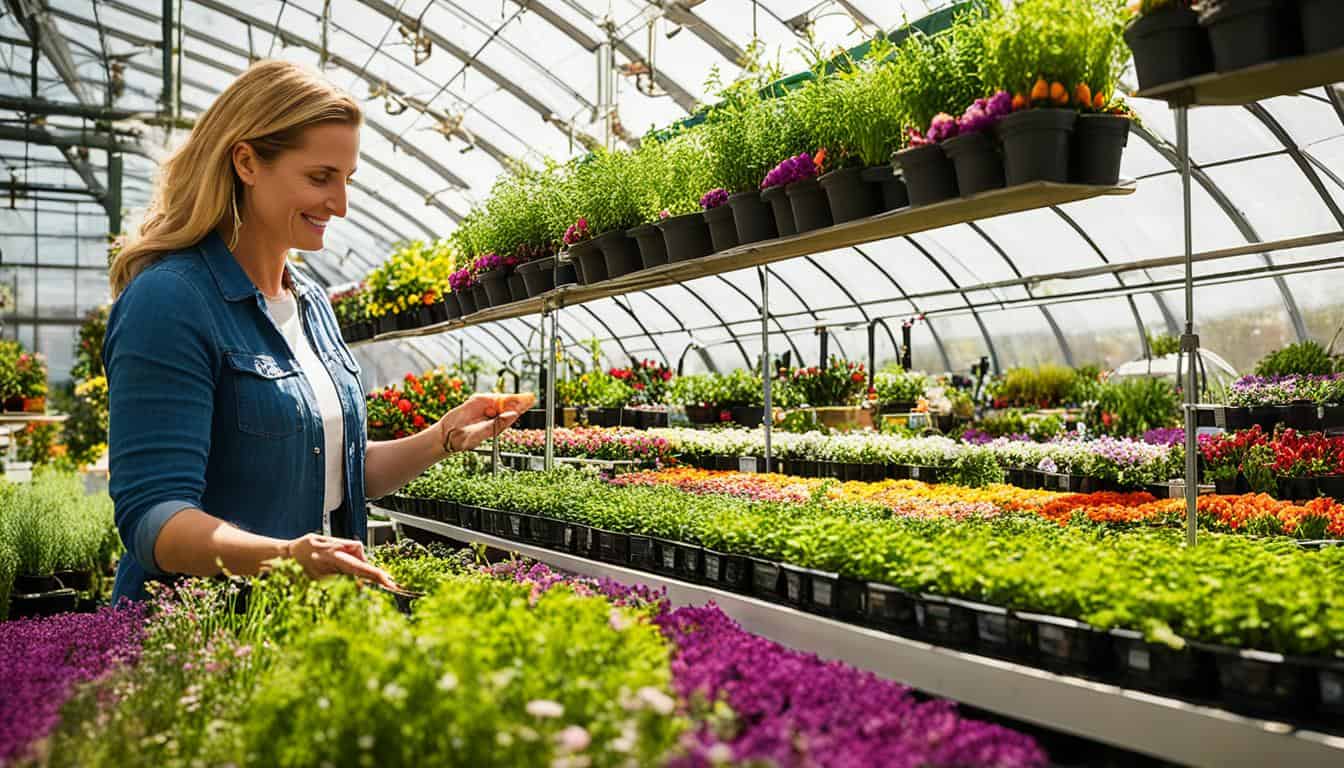
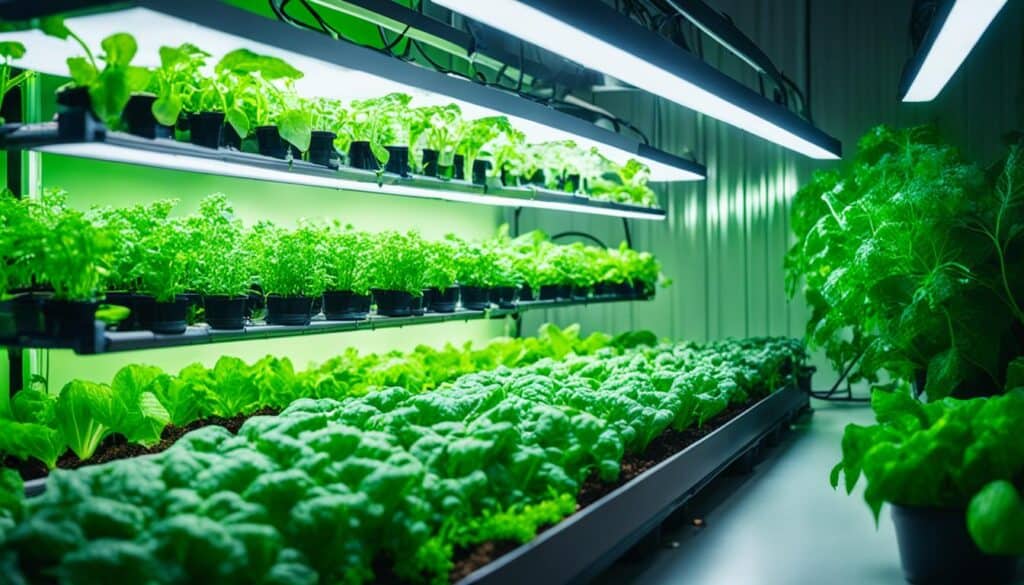
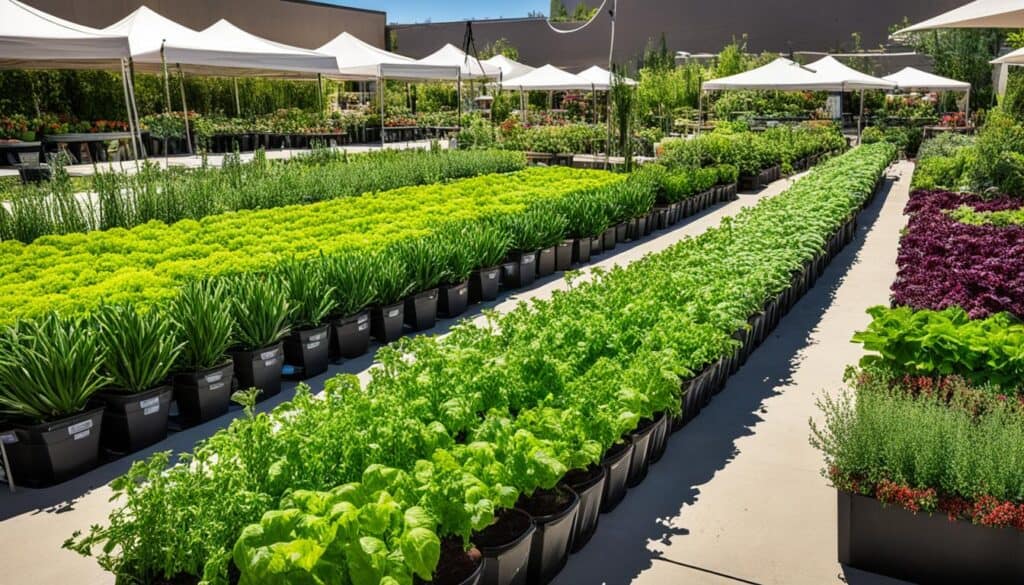
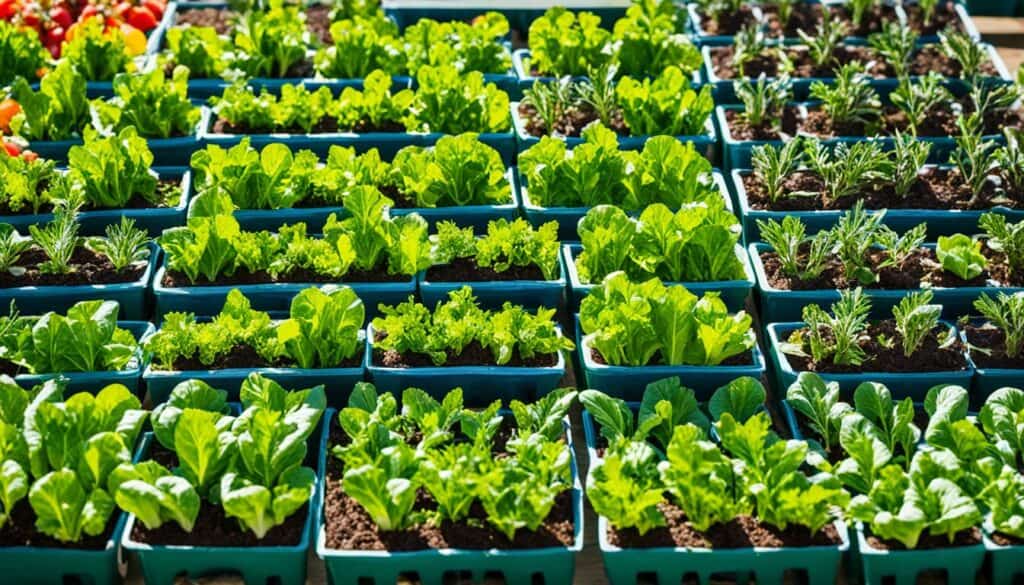
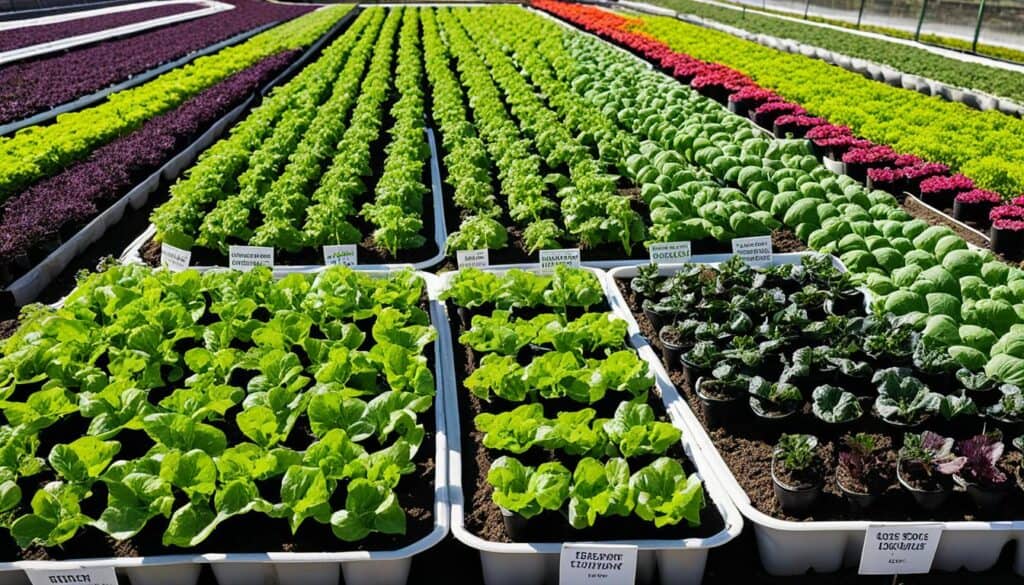
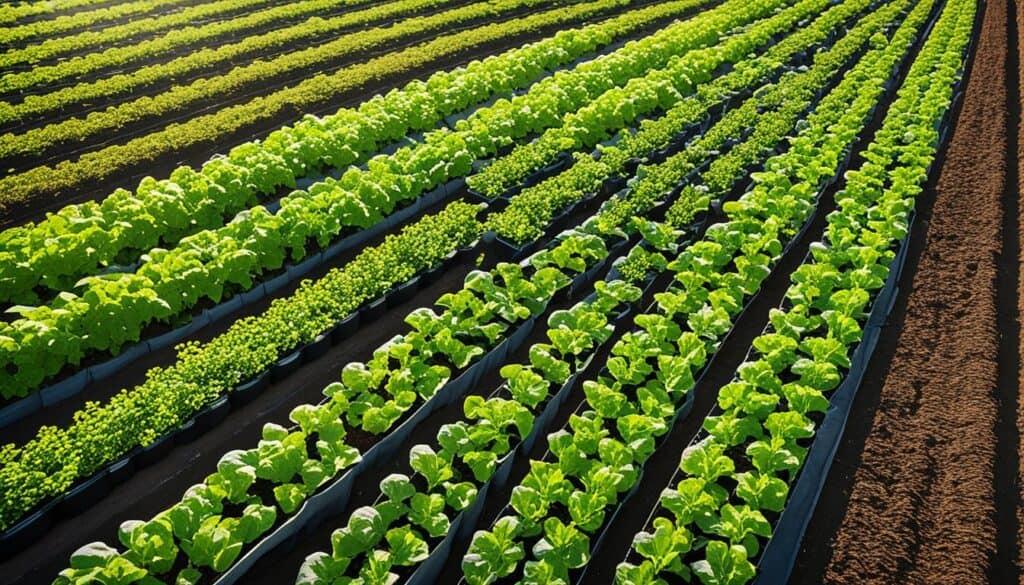



Leave a Reply